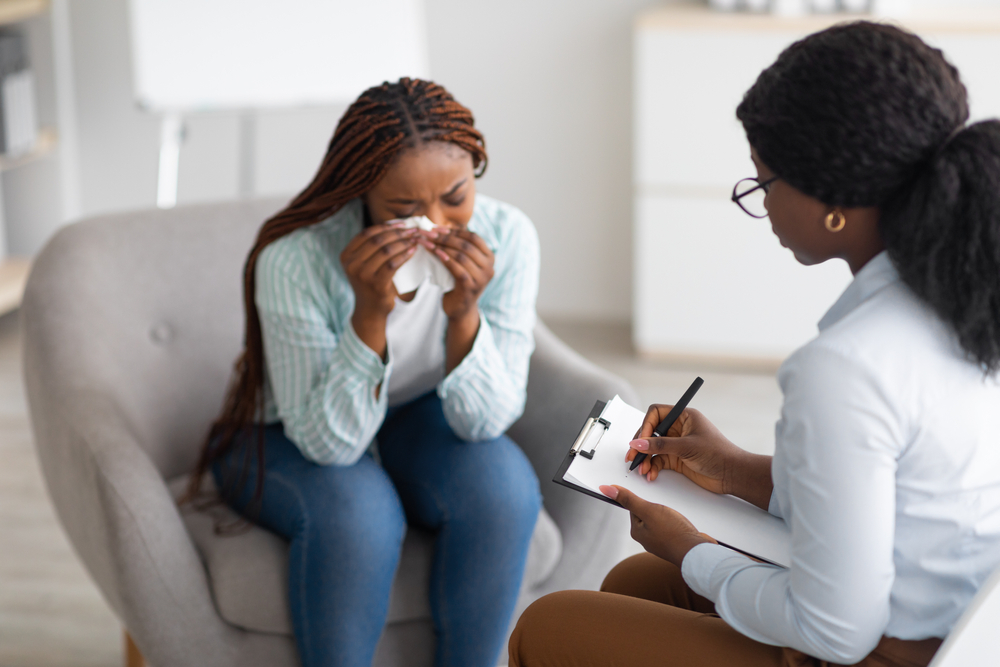
Many people suffer from anxiety and depression, and many people need the help of a professional to get through it. Please know that asking for help is always okay, you are not alone. According to the Center for Disease Control (CDC), during August 2020–February 2021, the percentage of adults with recent symptoms of an anxiety and/or a depressive disorder increased from 36.4% to 41.5%. The Coronavirus had a negative impact on many people due to the financial stress that it caused. Many people, for many different reasons, have never learned the tools that they need to work through symptoms of anxiety and depression. Some may have been told to ignore their feelings and “keep on pushing”. Anxiety and depression do not just go away on their own. It takes personal work to get through these tough feelings, and asking for help to get through it is absolutely fine and even necessary for many. If you feel like you experience anxiety and/or depression and it is getting in the way of you living your daily life, it is time to reach out for help.

Speaking to a therapist for the first time can be an anxiety provoking experience, so here are five tips for effective communication with your therapist:
- Be transparent. Do not hold anything back. Every negative feeling that you have should be expressed to your therapist in as much detail as you can provide. Even if you feel like problems are “too small”, that is never the case. Any problem causing you distress is a problem worth addressing. Your therapist is not there to judge you, they are there to help you.
- Build trust. Meeting a new person for the first time, even if they are a professional, you may not feel comfortable sharing personal details about your life. Do not feel rushed to feel comfortable with your therapist. Ease into your sessions, develop a rapport, and once you feel safe enough, confide in them.
- Be vocal. Sometimes, due to reasons that you may not even be able to explain, you just don’t click with someone. Your first therapist is not your only option, do not be afraid to end sessions and seek out another therapist if there is anything about their methods of therapy that don’t work for you. Feel confident enough to express what you don’t like, and if they don’t make a change, move on until you find someone you feel safe with. Please note it is very important that you honestly bring up your concerns to your therapist first before stopping sessions. Don’t ghost, communicate!
- Don’t avoid your triggers. Talking about past negative experiences can be emotionally draining, and for that reason, we tend to avoid them. In therapy, it is important that you discuss your past in detail. This helps the therapist understand why you may react to situations the way that you do and can help them know which tools they can provide to you that will be the most beneficial.
- Write down your negative thoughts and feelings in the moment. A lot of times when you go to a scheduled therapy session, you are not in crisis mode and it can be difficult to describe how you were feeling in a moment of panic or during feelings of deep sadness. Write out negative thoughts/feelings in the moment you are feeling them to help you describe the situation to your therapist in greater detail once your session time arrives. Sometimes you can go to therapy and feel like everything is okay at that moment, so there is not much to talk about. Having a journal with your ups and downs throughout the week can help you be ready for your session and discuss tools to get through these difficult moments, even if they have already passed.



